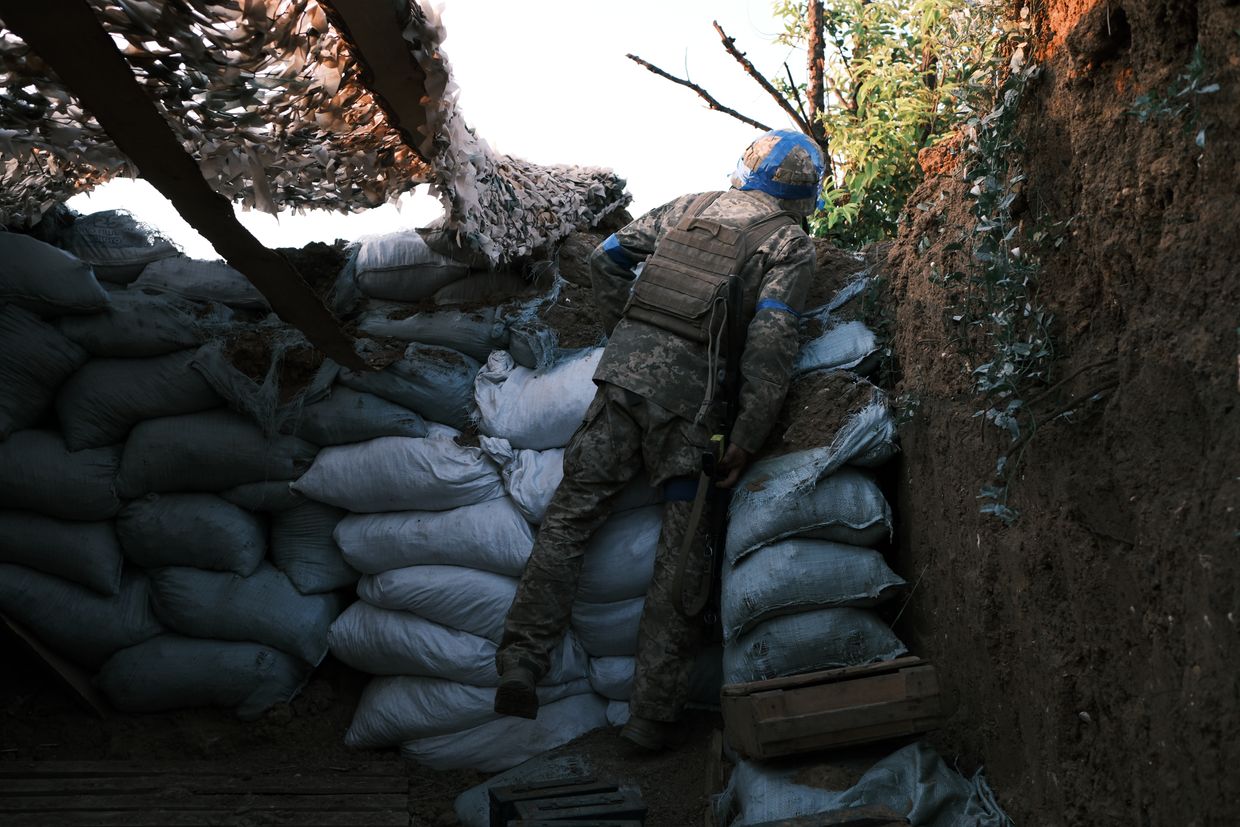Analysis: Despite a grand announcement, Europe takes zero steps towards peace in Ukraine

On Sept. 2, Russia and China outlined their vision of a multipolar world that would likely see democratic Europe largely abandoned by the U.S. and facing the nightmare scenario of direct confrontation with an emboldened, war-hungry Russia.
Two days later, democratic Europe responded with a plan for stopping Russian aggression in Ukraine that almost certainly won't work.
The plan, presented by French President Emmanuel Macron in Paris, relies entirely on the goodwill of two of the very people responsible for the current predicament — U.S. President Donald Trump, and Russian President Vladimir Putin.
The "Coalition of the Willing" summit in Paris concluded on Sept. 4 with the announcement that 26 countries are ready to send troops or contribute other support to Ukraine as part of security guarantees.
The caveat — the plan would only be put into action once the fighting stops.
The fighting will not stop. Russia has said — out loud and repeatedly — that it has no intention, or need to end its war against Ukraine short of total victory.
Macron added that if Russia refused to go along with the peace process, the U.S. and Europe would impose additional sanctions on Russia. He also said the U.S.'s role in any security guarantees would be decided in the coming weeks.
The U.S., meanwhile, continues to show little interest in committing to Europe's security guarantee plans.

The Financial Times reported on Sept. 4 that the Pentagon is also set to phase out security assistance for NATO countries bordering Russia. Vague threats of new U.S. sanctions have gone unfulfilled for months.
The Coalition of the Willing plan relies almost entirely on the goodwill of the one man waging war and the other man, who has yet to take a single concrete step to end it.
But the Coalition of the Willing does have options.
Europe could seize the $245.85 billion of frozen Russian assets currently sitting in European banks and furnish Ukraine's army with the weapons it needs to put a stop to Russia's invasion.
This would require no permissions from Washington or Moscow, wouldn't place European peacekeepers at risk, and would keep the war on Ukrainian soil before it reaches that of other European countries.
If they really wanted to be bold, they could send European troops to Ukraine without asking Russia, and before the fighting stops.
At this stage, it's not even an option on the table but there are signs that it would work.
Russia lies constantly, but facts can always be discerned from listening to what they object to, and Russia has repeatedly and consistently objected to European troops on Ukrainian soil because the Kremlin knows that this would spell the end of its territorial ambitions in Ukraine.
But currently Europe appears to be in denial, believing only Putin and Trump can decide the continent's fate.
Until that changes, we can only expect more of what we saw today — grand announcements that in essence, do little more than kick the can further down the road.And while that may be frustrating in the capitals of Western Europe, in Ukraine, for many, it will be fatal.











